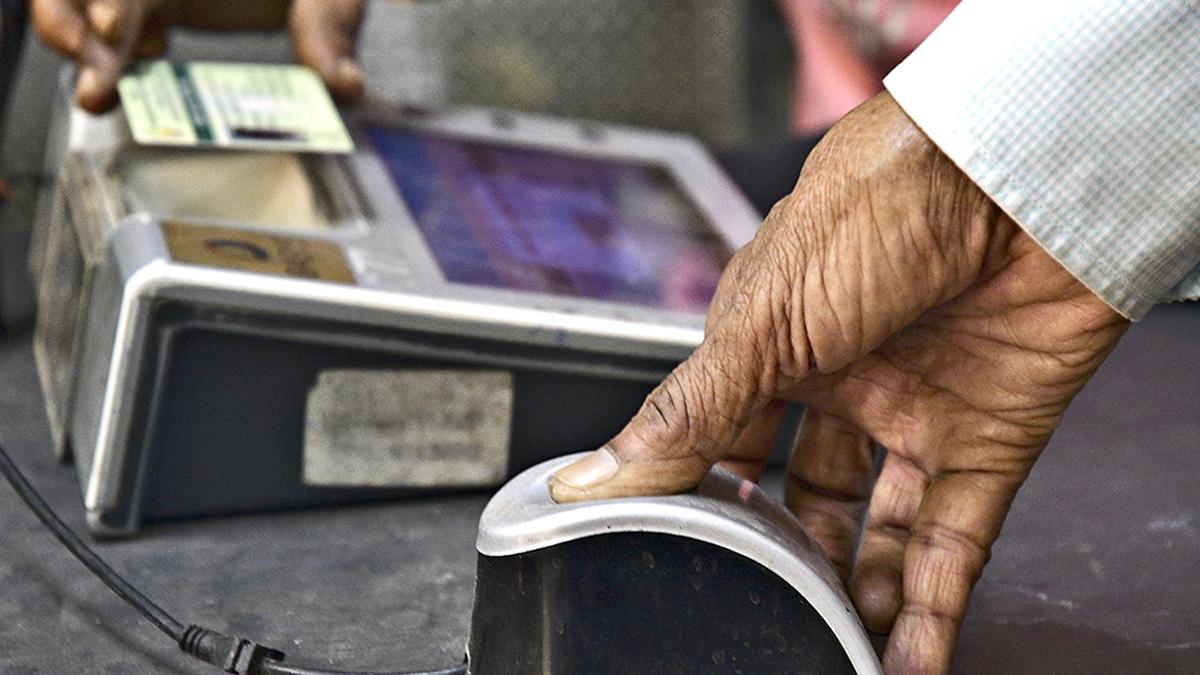Description

Copyright infringement not intended
Picture Courtesy: Textile vlog
Context: The Indian government recently announced a grant-in-aid of up to Rs 50 lakh to foster innovation in the technical textiles sector, specifically targeted at startups and individuals. This initiative falls under the framework of the Startup Guidelines for Technical Textiles, named Grant for Research and Entrepreneurship across Aspiring Innovators in Technical Textiles (GREAT).
Details
- The GREAT scheme (Grant for Research and Entrepreneurship across Aspiring Innovators in Technical Textiles) was launched by the Indian government recently. The scheme falls under the Ministry of Textiles and aims to promote innovation and entrepreneurship within the technical textiles sector.
- The scheme aims to propel the growth of technical textiles by supporting the transformation of research and prototypes into viable technologies and commercial products.
Key Features
Grant-in-Aid Funding
- Under the GREAT scheme, the Ministry of Textiles has approved grant-in-aid funding of up to Rs 50 lakh. This funding is available for a maximum duration of 18 months. The goal is to provide financial support that encourages innovation in specialized areas of technical textiles.
Nurturing Innovation
- The primary focus of the scheme is to nurture and promote innovation within the technical textiles sector. The guidelines are designed to guide startups, individuals, and companies through the process of taking their prototypes and concepts and translating them into market-ready technologies and products. This process ultimately facilitates their commercialization.
Collaboration with Leading Institutions
- The initiative aims to collaborate with renowned institutions such as IITs (Indian Institutes of Technology), NITs (National Institutes of Technology), Textiles Research Associations, and Centers of Excellence. These partnerships are intended to provide startups with essential support, guidance, and expertise.
Emphasis on Incubators
- The scheme places a significant emphasis on collaborating with incubators. Startups are eligible to receive grants without any expectation of royalties or equity from their products. The only required contribution from the recipient startups is a minimum of 10% towards the project.
Online Application Portal
- To streamline the application process and expedite the selection of potential beneficiaries, an online portal will be launched. This portal will accept applications for the grant, making it more accessible and efficient for startups to apply for funding.
Alignment with NTTM
- The GREAT scheme aligns with the National Technical Textiles Mission (NTTM), showcasing its integration into the broader framework of promoting technical textiles in India. This alignment emphasizes the scheme's strategic importance within the overall mission.
Expected Number of Beneficiaries
- The scheme is projected to support approximately 100-150 startups operating within the technical textiles domain. This indicates the substantial impact the scheme aims to have on fostering innovation and growth in the sector.
Incubator Support
- To further boost the startup ecosystem, the Textile Ministry has committed to providing 10% of the total grant-in-aid to the incubators. Incubators play a pivotal role in nurturing and guiding innovative ventures, making this support essential.
Commitment from Incubatees
- As a testament to the authenticity and commitment of the startup teams, a minimum investment of 10% of the grant funding is mandated. This requirement underscores the dedication of the startups to their projects and goals.

Significance of the Initiative
Innovation Catalyst
- The GREAT scheme serves as a powerful catalyst for innovation within the technical textiles sector. By extending financial assistance to startups and individuals, the initiative fuels the development and commercialization of their groundbreaking ideas. This infusion of funding stimulates fresh perspectives, novel concepts, and inventive solutions, thereby elevating the entire landscape of technical textiles.
Niche Development
- The initiative's emphasis on specialized segments of technical textiles, such as sustainable textiles, high-performance fibres, and smart textiles, addresses specific and often untapped market demands. This focus ensures that startups align their efforts with emerging trends and unique market needs, leading to the creation of products that cater to niche sectors.
Startup Empowerment
- The GREAT scheme empowers startups by offering more than just financial support. Through collaborations with renowned institutions like IITs, NITs, and Textiles Research Associations, startups gain access to a wealth of resources, expertise, and mentorship. This empowerment creates a nurturing environment where startups can thrive, innovate, and overcome challenges more effectively.
Economic Growth
- The successful commercialization of innovative technical textile products carries the potential to contribute significantly to economic growth. As startups progress from prototyping to market-ready products, they generate new job opportunities across various sectors of the economy. Additionally, the increased revenue generated by successful products positively impacts industry growth and GDP contribution.
Research Translation
- The initiative bridges the gap between theoretical research and practical application by facilitating the translation of academic findings into tangible products. This alignment of research with industry needs is crucial for fostering collaboration between academia and the business world. It ensures that innovative ideas emerge from research labs and find their way into the market, ultimately driving progress.
Challenges
Funding
- The technical textiles sector demands substantial investment in research and development activities. Funding constraints hinder the ability to conduct extensive research, develop advanced technologies, and prototype innovative products. This financial barrier can stifle progress and limit the sector's growth potential.
Skilled Manpower
- A skilled and knowledgeable workforce is essential for driving research and innovation. However, the technical textiles sector faces a shortage of experts, scientists, engineers, and researchers who possess the expertise required for cutting-edge advancements. Bridging this skill gap is crucial to accelerate progress.
Infrastructure
- Research and development necessitate robust infrastructure, including well-equipped laboratories, advanced testing facilities, and pilot plants for prototyping. The deficiency in adequate infrastructure hampers the ability to carry out sophisticated experiments, prototype development, and testing, slowing down the pace of innovation.
Intellectual Property Protection
- Intellectual property (IP) protection is crucial for incentivizing companies to invest in research and development efforts. Without proper IP protection, companies might hesitate to share their innovative ideas and technologies, fearing that they might be copied without proper compensation or recognition.
Way Forward
Increased Funding
- To overcome the funding challenge, the government needs to allocate higher budgets dedicated to research and development in the technical textiles sector. This can be achieved through collaboration with public and private financial institutions, international funding agencies, and even corporate partnerships.
Improved Training and Education
- Enhancing the training and education of scientists, engineers, and researchers in the technical textiles sector is pivotal. This can be achieved by establishing specialized courses, workshops, and training programs in collaboration with academic institutions and industry experts. These initiatives should be designed to bridge the skill gap and foster expertise.
Improved Infrastructure
- Investments in infrastructure are essential to facilitate innovative research and development. Establishing well-equipped research laboratories, advanced testing facilities, and pilot plants can provide the necessary infrastructure for startups and companies to experiment, develop prototypes, and test new products.
Improved Intellectual Property Protection
- Strengthening the intellectual property protection regime is essential to instil confidence in companies to invest in research and innovation. The government should work on enhancing IP laws, regulations, and enforcement mechanisms to ensure that innovators are rewarded and protected for their contributions.
Public-Private Partnerships
- Promoting public-private partnerships (PPPs) can be a strategic way to address multiple challenges simultaneously. By collaborating with industry players, startups, academic institutions, and research organizations, the government can pool resources, expertise, and funding to drive research and innovation in the technical textiles sector.

Conclusion
- The Centre's announcement of the grant for technical textile startups under the GREAT scheme signifies a strategic move towards practical innovation and economic growth. By recognizing the potential of existing research and prototypes and aligning efforts with institutions and incubators, this initiative has the potential to catalyze a new wave of entrepreneurship and innovation within the technical textiles sector, ultimately contributing to India's progress in this critical domain.
Must Read Articles:
TECHNICAL TEXTILE MARKET: https://www.iasgyan.in/daily-current-affairs/technical-textile-market
Technical Textiles Sector: https://www.iasgyan.in/daily-current-affairs/technical-textiles-sector
|
PRACTICE QUESTION
Q. What are the main features and significance of technical textiles, Provide a comprehensive overview of the primary challenges and opportunities encountered by the technical textiles sector in India, and offer insights into potential strategies and approaches that can be employed to effectively address these challenges and leverage the opportunities to foster the sector's growth and advancement?
|
https://www.business-standard.com/economy/news/centre-announces-up-to-rs-50-lakh-grant-for-technical-textiles-startups-123082900683_1.html
Array
(
[0] => daily-current-affairs/great-scheme
[1] => great-scheme
[2] => daily-current-affairs
)








